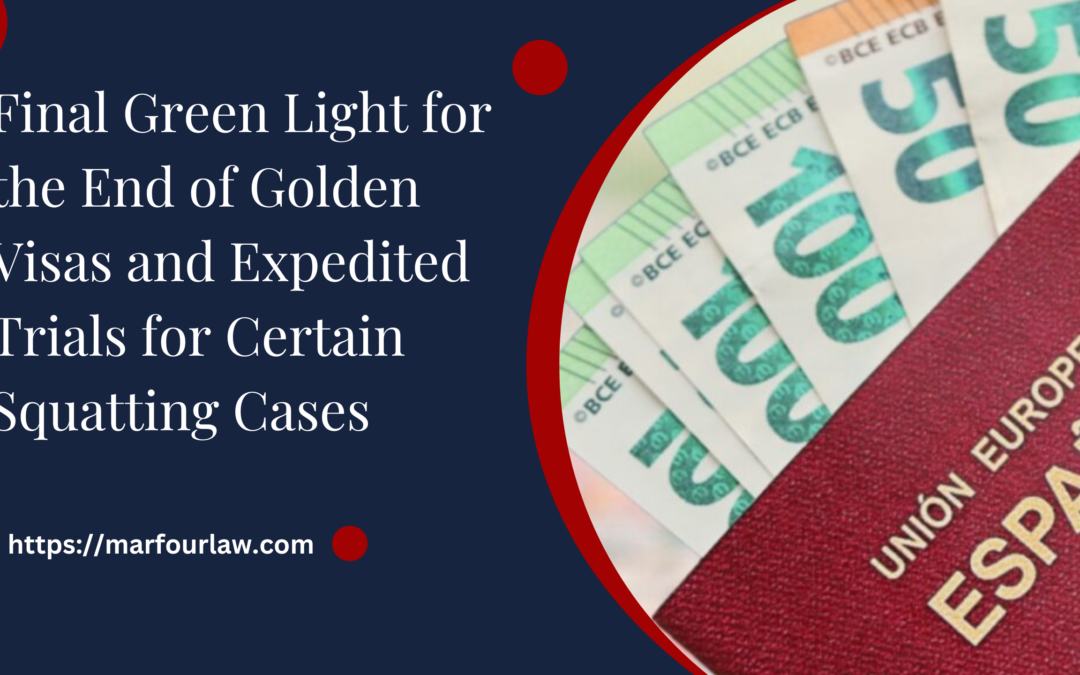The Spanish Congress has officially approved the Organic Law on the Efficiency of Public Justice Service, which introduces two significant changes: the abolition of ‘golden visas’ and the implementation of expedited trials for certain types of illegal squatting.
The first major change involves the termination of the golden visa program, which granted residency to foreign investors who purchased properties valued at over 500,000 euros. Originally established during Mariano Rajoy’s government to attract investment, the program will be phased out. However, individuals who apply for these visas before the new law is enacted will still be eligible to receive one.
The second key measure focuses on speeding up the legal process for cases of illegal squatting. Under the new law, crimes such as home invasion and property usurpation will be handled through expedited trials, which will allow these cases to be processed within approximately 15 days. However, the law does not address the issue of “inquiokupación,” where tenants intentionally stop paying rent and take advantage of slow judicial procedures to continue occupying properties without paying.
The primary aim of this new regulation is to improve the efficiency of the justice system, making legal processes faster and more accessible while ensuring that citizens’ rights are protected. Despite facing opposition and a veto from the Senate, the law has been passed by the Congress of Deputies with strong support. The People’s Party (PP), however, voiced concerns, arguing that the law could lead to disorganization and confusion, as it could potentially create conflicts with other existing laws.
In summary, the new regulation seeks to enhance the effectiveness of the justice system, address issues of illegal squatting, and phase out the golden visa program, while aiming to protect consumer rights and streamline legal procedures.

